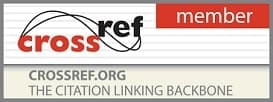2024, Vol. 7, Issue 1, Part A
Compare the efficacy and the safety of caffeine versus aminophylline for prophylaxis and treatment of apnea of prematurity in preterm neonates (≤34 weeks)
Author(s)
Raafat Ali Bashar, Shahla Abdal Wahab Hameed and Haneen Laith Abdul Khaleq
Raafat Ali Bashar, Shahla Abdal Wahab Hameed and Haneen Laith Abdul Khaleq
Abstract
Background: Prematurity apnea is described as inability to breathe for 20 seconds or less, accompanied by bradycardia (heart rate <100/minute) or cyanosis, in neonates under 37 weeks gestational age. Since the 1970s, methylxanthines have been used to treat apnea by stimulating breathing. Few developing country trials compare caffeine with aminophylline for efficacy and safety.
The aim of the study: To compare the efficacy and the safety of the Caffeine versus the Aminophylline in prophylaxis and treatment of apnea of prematurity in Preterm Neonates (<34 weeks).
Methods: A prospective, open-label, randomized controlled trial was conducted from October 2017 to January 2018 in Al-Yarmouk Teaching Hospital's tertiary NICU. Patients were followed up at Child's Central Teaching Hospital if they were referred for weight gain until 35 weeks of gestational age, infants were randomly assigned to two therapy groups (aminophylline and caffeine) based on their birth date (odd or binary), given loading and maintenance doses, and documented for apnea, bradycardia, cyanosis, tachycardia, CPAP, mechanical ventilator, seizure, NEC, and ICH.
Results: There were no significant statistical differences in the mean of (sex, gestational age, twin or single, mother age, methods of delivery, apnea occurrence, NEC, ICH, length of treatment, and mortality) between the two therapy groups for the 55 preterm neonates. Compared to the Caffeine group, the Aminophylline group had a significant association with CPAP and mechanical ventilator use, but not duration.
Conclusion: Caffeine decreases the need for CPAP and mechanical ventilation, Caffeine is considered as having the efficacy and the safety outcome in comparison with the Aminophylline.
Pages: 48-52 | Views: 57 | Downloads: 26

How to cite this article:
Raafat Ali Bashar, Shahla Abdal Wahab Hameed, Haneen Laith Abdul Khaleq. Compare the efficacy and the safety of caffeine versus aminophylline for prophylaxis and treatment of apnea of prematurity in preterm neonates (≤34 weeks). Int J Paediatrics Geriatrics 2024;7(1):48-52. DOI: 10.33545/26643685.2024.v7.i1a.224






